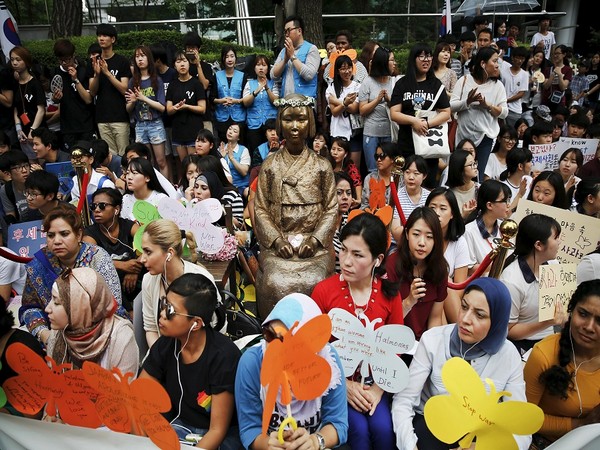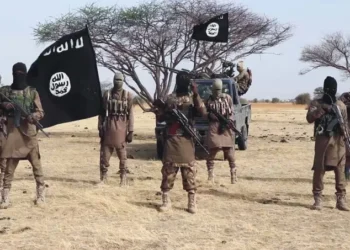A South Korean court on Friday ordered Japan’s government to pay damages to the South Korean victims who were forced into sex slavery for the Imperial Japan’s military brothels during World War II.
The Seoul Central District Court ruled that Japan should pay reparations of 100 million won (91,200 U.S. dollars) to each of 12 plaintiffs, who filed a petition for dispute settlement with the court in August 2013.
It marked the first time that a court here handed down a verdict to order Japan’s reparation payment to the victims, euphemistically called “the comfort women.”
The damages claim suit was only referred to the Seoul court in January 2016, and the first hearing was held in April last year as the Japanese government declined to officially receive the civil case petition.
The court said in the ruling that the plaintiffs suffered from extreme, unimaginable mental and physical pain and were not even compensated for their suffering, noting that illegal acts by the accused can be acknowledged through evidence, relevant materials and testimonies.
The verdict noted that it would be reasonable to value the damages amount at over 100 million won.
Japan maintained that the case should be dropped given the sovereign immunity that allows a state to be immune from civil suit in foreign courts, but the South Korean court said it cannot be applied to the case as the illegal acts were crimes against humanity committed deliberately, systematically and widely by the Imperial Japan.
Historians say hundreds of thousands of Asian women, mostly from the Korean Peninsula, were kidnapped, coerced or duped into sexual servitude for Japanese troops before and during the Pacific War.
The court noted that the damages suit cannot also be applied to the Seoul-Tokyo deals in 1965 and 2015.
Japan claimed that the 1965 treaty, which normalised diplomatic ties between Seoul and Tokyo, resolved all colonial-era issues, including the wartime sex enslavement and forced labour, but South Korea said the individual right to damages had yet to be resolved.
The Korean Peninsula was colonized by Japan from 1910 to 1945.
In December 2015, the then South Korean government reached a final, irreversible agreement with Japan to settle the wartime sex slave issue in return for Tokyo’s offer of one billion yen (9.6 million U.S. dollars), with which a foundation was built here to assist the South Korean victims and their families.
The foundation was formally dissolved in July 2019 as the victims protested against the foundation, demanding the Japanese government’s sincere apology and its acknowledgment of legal responsibility for the wartime atrocities.
The Seoul court’s ruling is forecast to worsen the South Korea-Japan relations, which were already frayed over the wartime forced labor and trade disputes between the two countries.
Despite the expected diplomatic friction, South Korea hurried to resolve the colonial-era issues because of the aged victims. Out of the 12 plaintiffs joining the damages claim suit, only five are still alive.
Among the 238 South Korean women who identified themselves as former sex slaves, the number of survivors is 16.










Discussion about this post